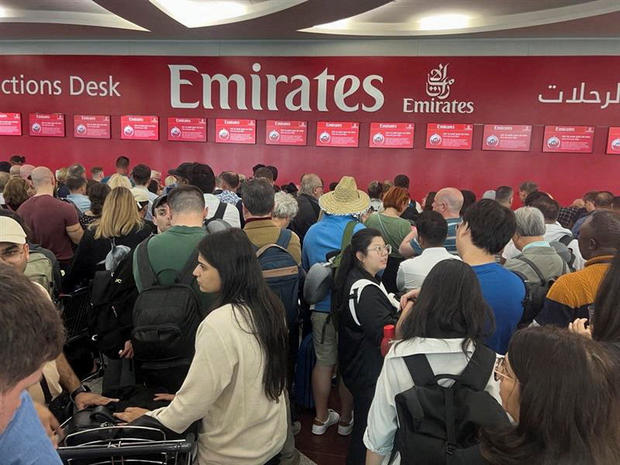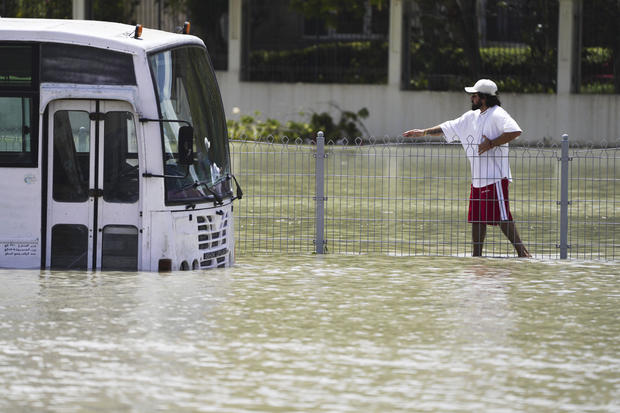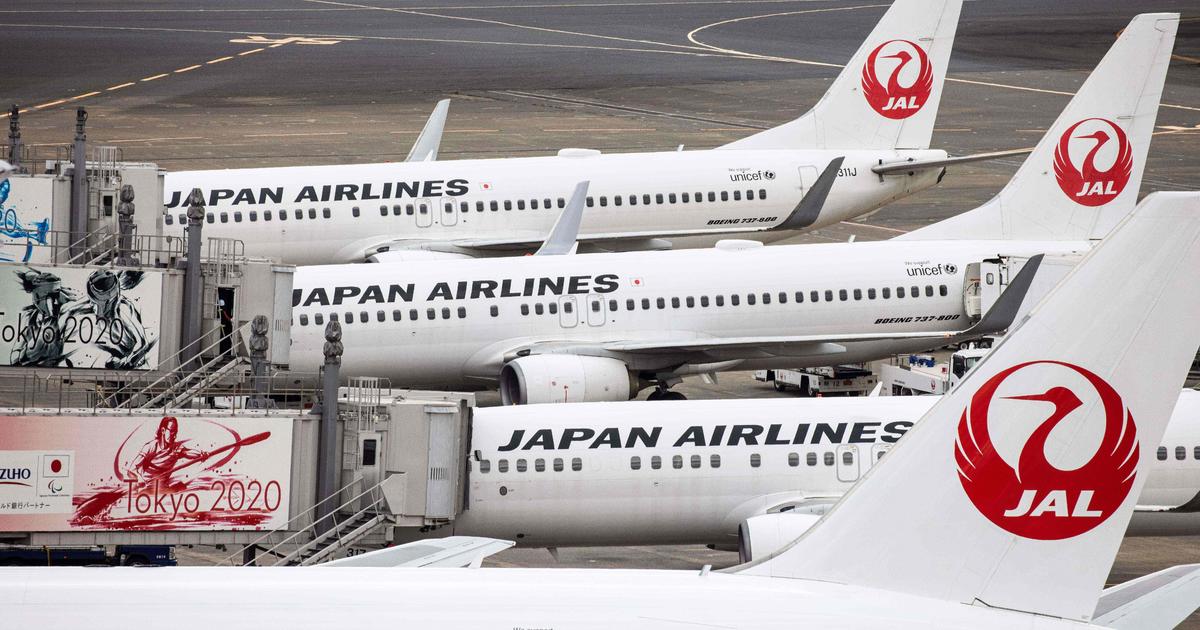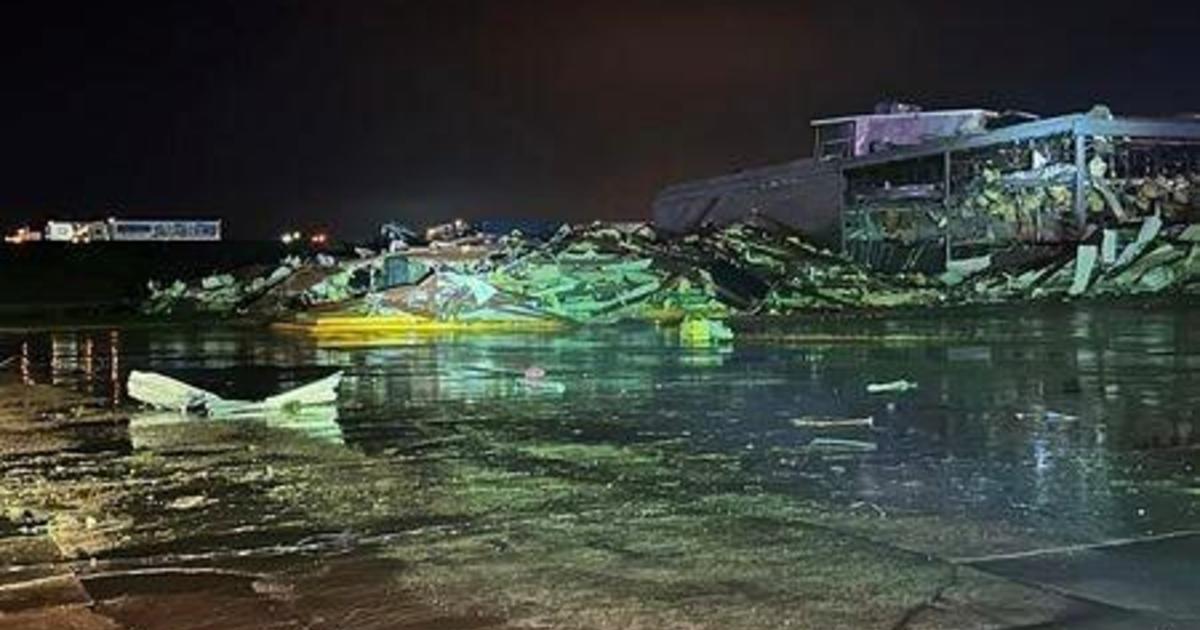Dubai airport operations ramp back up as flooding from UAE's heaviest rains ever recorded lingers on roads
Dubai, United Arab Emirates — The United Arab Emirates struggled Thursday to recover from the heaviest recorded rainfall ever to hit the desert nation, as its main airport worked to restore normal operations even as floodwater still covered portions of major highways and roads.
Dubai International Airport, the world's busiest for international travel, allowed global carriers on Thursday morning to again fly into Terminal 1 at the airfield. Later Thursday, the facility said in a message posted on social media that its Terminal 3 was also reopening for flight check-in, but it warned passengers to come only if their pending departure was confirmed due to "a high volume of guests in the check-in area."
"Flights continue to be delayed and disrupted, so we urge you to only come to Terminal 1 if you have a confirmed booking," the airport said in its series of tweets.
Later Thursday, a message shared by the Dubai government's media office quoted the Dubai International Airport's Chief Operating Officer Majed Al Joker as saying the facility would "return to its full operational capacity within 24 hours."
The long-haul carrier Emirates, whose operations had been struggling since the storm Tuesday, had stopped travelers flying out of the UAE from checking into their flights as they tried to move out connecting passengers. Pilots and flight crews had been struggling to reach the airport given the water on roadways. But on Thursday, they lifted that order to allow customers into the airport.
Others who arrived at the airport described hourslong waits to get their baggage, with some just giving up to head home or to whatever hotel would have them.
The UAE, a hereditarily ruled, autocratic nation on the Arabian Peninsula, typically sees little rainfall in its arid desert climate. However, a massive storm forecasters had been warning about for days blew through the country's seven sheikhdoms. By the end of Tuesday, more than 5.59 inches of rainfall had soaked Dubai over 24 hours. An average year sees 3.73 inches of rain at Dubai International Airport. Other areas of the country saw even more precipitation.
The UAE's drainage systems quickly became overwhelmed, flooding out neighborhoods, business districts and even portions of the 12-lane Sheikh Zayed Road highway running through Dubai.
The state-run WAM news agency called the rain "a historic weather event" that surpassed "anything documented since the start of data collection in 1949."
In a message to the nation late Wednesday, Emirati leader Sheikh Mohammed bin Zayed Al Nahyan, the ruler of Abu Dhabi, said authorities would "quickly work on studying the condition of infrastructure throughout the UAE and to limit the damage caused."
On Thursday, people waded through oil-slicked floodwater to reach cars earlier abandoned, checking to see if their engines still ran. Tanker trucks with vacuums began reaching some areas outside of Dubai's downtown core for the first time as well. Schools remain closed until next week.
Authorities have offered no overall damage or injury information from the floods, which killed at least one person.
"Crises reveal the strength of countries and societies," Dubai's ruler, Sheikh Mohammed bin Rashid Al Maktoum, wrote on X. "The natural climate crisis that we experienced showed the great care, awareness, cohesion and love for every corner of the country from all its citizens and residents."
The flooding sparked speculation that the UAE's aggressive campaign of cloud seeding — flying small planes through clouds dispersing chemicals aimed at getting rain to fall — may have contributed to the deluge. But experts said the storm systems that produced the rain were forecast well in advance and that cloud seeding alone would not have caused such flooding.
Jeff Masters, a meteorologist for Yale Climate Connections, said the flooding in Dubai was caused by an unusually strong low pressure system that drove many rounds of heavy thunderstorms.
Climatologists have warned for years that human-driven climate change is fueling more extreme and less predictable weather events across the globe.
Parts of southern Russia and Central Asia have also been dealing for days with unusually damaging amounts of rainfall and snowmelt, forcing tens of thousands of people to evacuate to higher ground and killing more than 120 people in Pakistan and Afghanistan.
Dubai hosted the United Nations' COP28 climate talks just last year.
Abu Dhabi's state-linked newspaper The National, in an editorial Thursday, described the heavy rains as a warning to countries in the wider Persian Gulf region to "climate-proof their futures."
"The scale of this task is more daunting that it appears even at first glance, because such changes involve changing the urban environment of a region that for as long as it has been inhabited, has experienced little but heat and sand," the newspaper said.





